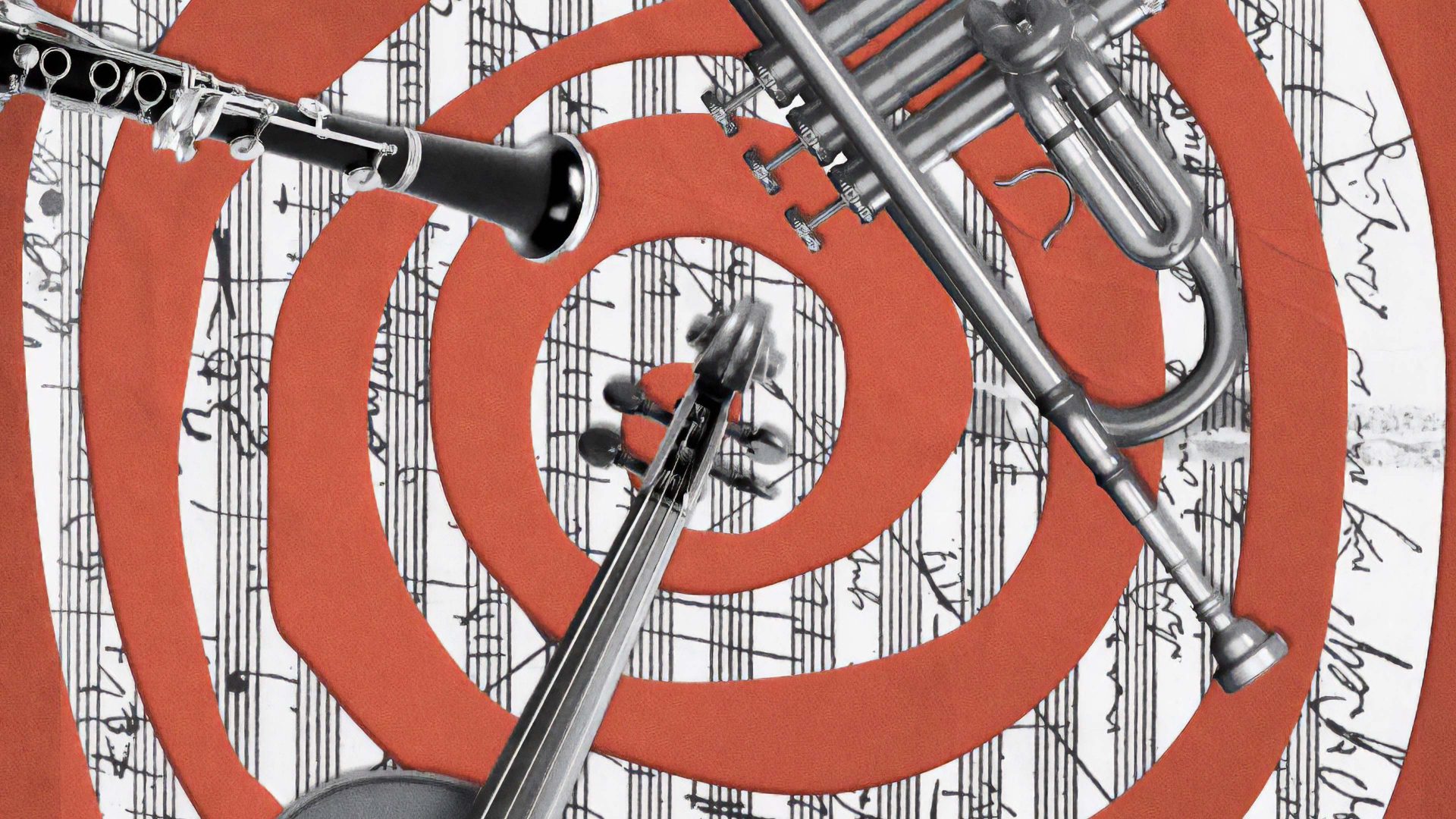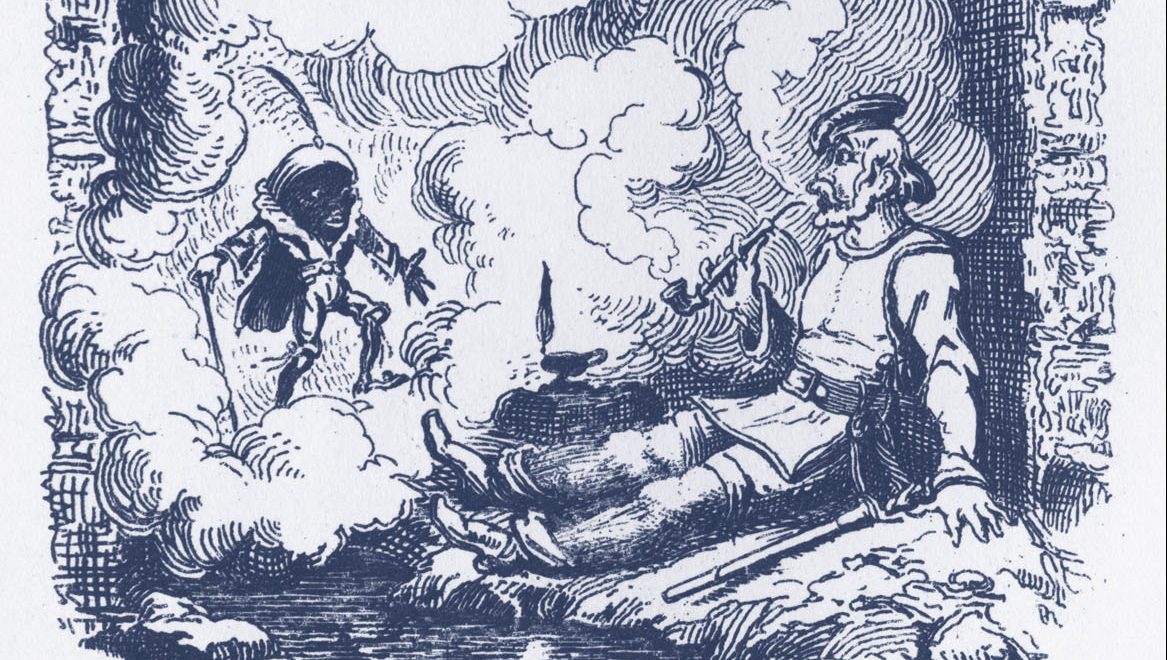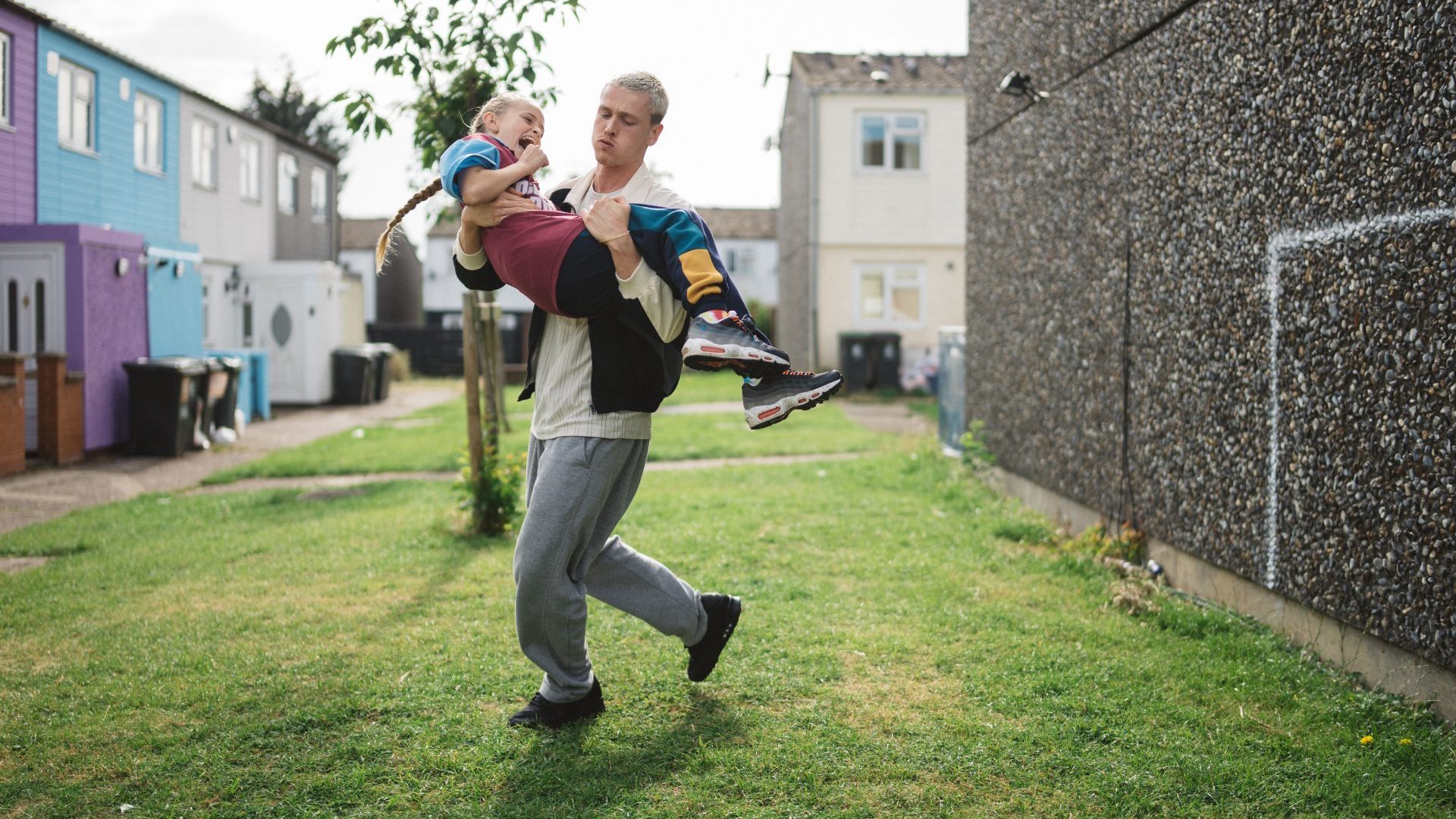The young musicians rehearsing Stravinsky’s Rake’s Progress embrace the gruesome tale of debauchery and the Devil with verve, but once off stage, they present a much happier picture than the doomed protagonist.
And why not? It’s sunny outside in Verbier, where they’re enjoying three weeks at the Swiss ski resort’s famous music festival, taught by and mingling with a constellation of international classical stars. Myriad languages emanate from cafes and restaurants, and the air sings with the music of masterclasses held by big names such as Hungarian violinist and conductor Gábor Takács-Nagy and German piano professor Klaus Hellwig.
However, when I interview the British singers, including the tenor Christopher Willoughby — the titular Tom Rakewell — a switch is flipped, and the mood is suddenly dark. That’s because we’re here to talk about Brexit, its isolationist undertones anathema to the quintessential Europeanness of this festival.
For hundreds of years musicians have moved across the Channel for work, learning and audiences. Classical music is collaborative and international, Brexit is not. It introduced barriers to work and travel, expensive paperwork that most musicians cannot afford, and sent young British artists down the pecking order when it comes to plum European jobs. Everything from vital orchestra tours to singing gigs and study opportunities have been affected.
“It’s been an absolute nightmare,” sighs Willoughby, shifting in his seat. “It’s been financially stressful; stressful in terms of the immigration process; stressful for my family and friends. Not a day goes by when I’m not worrying about it.”
Yet Willoughby is one of the lucky ones. He went to Vienna to study opera in 2021, soon after Brexit day. It’s been no picnic. While UK musicians can still study in the EU, the necessity and complexity of new visa rules continue to trip up many.
Willoughby is constantly on tenterhooks. To get a student visa in the first place, his mother raided her pension money for the funds that proved he could support himself. Renewals are regularly delayed and their scope is confusing. He recently needed a separate emergency visa to perform in the Netherlands, narrowly avoiding having to cancel a five-concert series when it arrived just 24 hours before his departure time. A friend miscalculated the time allowed in other European countries and was deported from Austria, missing more than six months of studies as he reapplied from the UK.
Still, Willoughby says moving was “the right decision”, a step towards accessing the same higher pay, big audiences and continent-wide opportunities enjoyed by European musicians.. He has just started a new position in Opernhaus Zurich. “My plan now is absolutely not to return to the UK.”
Such a future seems elusive for baritone Sam Hird. Brexit has left the Royal College of Music student “flustered and confused”, his dreams crushed. “When I was a first year undergraduate my teachers all said ‘you need to think about going to Germany as soon as you finish here’,” he explains “As soon as Brexit happened that chatter about going abroad just died down and it stopped seeming that this was a possibility.”
He believes it’s inevitable now that European employers will prioritise talent from the EU, rather than British singers with all the baggage of paperwork, taxation, visas and uncertainty.
That’s borne out in a report by the Independent Society of Musicians (ISM) in August, which found that 27.8% of musicians have had no work in Europe since Brexit. Nearly half of respondents had seen their work in Europe decline, 40% had work cancelled and almost as many said they had to turn down work due to costs and logistics.
Similar worries preoccupy mezzo-soprano Sian Griffiths, who recently performed at Garsington Opera. Although her career hasn’t been affected yet, she knows it’s looming.
“The anxiety is huge,” she tells me. European performance opportunities often come at the last minute, and she fears lengthy visa processes could cause her to miss out. These usually come in clusters, so there’s more to lose. “There are fashions for singers, and if you aren’t able to quickly take advantage of the offers when you’re in fashion, you lose the chance to establish yourself.”
What about focusing more on the UK? She gives a wry smile. The UK classical music industry is struggling to survive in the face of swingeing cuts, most recently imposed during Nadine Dorries’ particularly philistine tenure as culture secretary. Opera was hit hard.
The English National Opera, one of London’s two permanent opera houses, was told to leave the capital and will lose much of its funding. Many companies, including Glyndebourne and the Welsh National Opera, had to reduce or abandon regional touring, a source of leading roles for young musicians. Surviving jobs are paid less.
“Brexit added a huge problem on top of an industry that’s already very difficult to exist in,” Griffiths tells me. “It’s never been an easy career. You’re essentially self-employed — it’s always going to be ‘fingers crossed we’ll just see what happens’. It is very scary.”
All the musicians know people who quit, some seeking work such as arts fundraising or administration, others trying their luck as yoga teachers or interior designers — even precarious jobs are considered safer bets.
Startlingly, so does violist Jaren Ziegler, a BBC Young Musician finalist last year, who’s only 17. Part of the Verbier Academy, he’s entranced by the place: “It’s a dream… I bumped into Yo Yo Ma at a bus stop! It was a bit surreal.” He also played a scratch football match with a group including Sheku Kanneh Mason and the pianist Bruce Liu.
But his delight is punctured by fears over the future. “It feels like things are declining in the UK. The option of working abroad is now more limited, which is quite worrying.”
He laments the reduction of opportunities to connect with European musicians — be it through the loss of the Erasmus student exchange scheme, or the fall in Europeans choosing UK conservatories. “We won’t have so many people to play with or learn from — it’s a real shame there’s not that kind of link any more…”
Another loss is the European Union Youth Orchestra. Dutch-British violinist Marije Johnston — founder of the award-winning Navarra String Quartet and a teacher at the Royal Academy of Music — knows exactly what Ziegler and her pupils are missing: “My most treasured years were in that orchestra. That’s when I met so many people from all over Europe and learned from them,” she tells me. *The British were a massive part in it. It’s very strange that they’re not making any connections with them any more.”
Johnston’s career is illustratively cross-cultural. Arriving in the UK at 19 to study at the Royal Northern College of Music, she met many Europeans there, including Hungarian musicians she played chamber music with. Having to fit into the frenetic rhythms of British musicians, rushing from short, last-minute rehearsals to concerts helped her build on the more reflective ways she learned in the Netherlands.
“It’s exciting. The English are insanely good at sight-reading. I really learned to sight-read here.” Such international exchanges made her a better violinist, she says, “And a different person, with a much wider perspective.”
All this is still widely available for European musicians. German cellist Anouchka Hack, 27, is full of optimism and promise. Enjoying plentiful state-provided opportunities to study music near Dortmund, including cheap lessons, she then had a wealth of higher-level teachers and performance opportunities to choose from.
“I freelanced a lot around Lac Leman. There are so many festivals there, concerts there. I’ve been to Italy a couple of times, and Poland, Austria and Belgium,. I’m going to Estonia in the fall and Ireland as well. I’m pretty European.”
But for the most part, she felt no need to move base. Why do that when some of the the best teachers are nearby? She has worked with leading French cellist Gautier Capucon, who lives in Germany. She has studied in Kromberg with Franz Helmerson, who has worked with many of today’s cellists, as well as in Lubeck and Berlin.
For disaffected UK-based musicians, Germany, and especially Berlin, is a magnet — although how long this can be sustained is moot. Pianist Arthur di Francesco, who grew up in London, recently moved there after graduating from the RCM.
“I always thought it would be nice to do a masters at some point in Germany because it’s free, their music education is really top notch,,” he tells me from his flat in Berlin. Brexit provided the impetus.
His cultural life is easier, he says, as well as cheaper. “As a musician you want to be in London, because culture is concentrated there, but at the same time it’s impossible to make a living. “
Berlin may be half the size of London, but it’s teeming with culture. “Just like London, there are seven big orchestras…there’s really this feeling that art is alive”.
Even small and medium sized cities in Europe have opera houses and concert halls, the vibrancy of regional arts offering careers to people of many levels, rather than just the absolute best.
As with Willoughby, di Francesco doesn’t foresee returning to the UK. Similarly for Swiss baritone Felix Gygli, a recent English National Opera Young Artist programme and 2023 winner of the prestigious Kathleen Ferrier Award. He has a network of contacts and a good social life in London, but says it’s simply unaffordable.
Brexit blindsided Gygli while studying for a masters at Guildhall conservatoire — his annual fees suddenly doubled to around £24,000, forcing him to rush through his studies in one year. He would now need a Global Talent Visa, which is hard to get. Instead, he is joining the International Opera Studio at Opernhaus Zurich, alongside Willoughby. He worries many other Europeans will do the same, to the detriment of standards in UK institutions.
“The UK used to be a very attractive market for European singers but has really lost a lot of attractiveness. After funding cuts it’s less well paid,” he tells me. In any case, the amount of work offered is less because of visa restrictions.
“Honestly, this might be rich coming from a European but in the end at some point the quality will suffer because it will be harder to cover all these roles and all the odd jobs that need to be done with all these singers, however good they are.”
Tellingly, Hack has not yet performed in the UK and hesitates to apply to UK music programmes: “I felt a little insecure about it because the visa situation hasn’t been clear and it hasn’t been super inviting.”
The loss of European musicians isn’t just bad for them, but for whole institutions and the British students they would have been studying alongside, agrees Anna Wolstenholme, senior lecturer and Artist Development professor at the Royal Academy of Music. This was a completely predictable part of Brexit for which conservatoires are trying to compensate.
The Academy set aside funding for scholarships enabling some of the best European applicants to study in the UK, while Sir Elton John — a former student and one of its biggest donors — is funding British students to go abroad. There are exchange agreements in place between individual UK and European conservatoires.
But although there are moves to alleviate such damaging travel restrictions — including a committee chaired by Labour’s Harriet Harman — the government largely seems impervious to the effect of both Brexit and funding decisions on young musicians. “I really feel they don’t understand the pipeline ecosystem angle for young musicians, particularly singers,” says Wolstenholme.
Further up this “pipeline”, opportunities for potential musicians have also been hit. Music tuition in state schools is increasingly uneven. Access to state-backed Music Education Hubs, which offer tuition, ensembles and county-level orchestras, bands and choirs, is a postcode lottery. A funding freeze since 2012 has created a real terms decrease of 48%.
Now the government has burdened them with a further load — to manage the consolidation of Britain’s 116 music hubs into 43 centres. No specific cuts are demanded yet, but that’s always the danger with such ideological plans to create the illusion of economies of scale, leading to a misplaced diagnosis that less funding is required.
“A further decrease of funding would be catastrophic,” says Paul Guenault, Director of the Buckinghamshire Music Trust, who has the unenviable task of combining his active, independent hub with the equal self-sufficient Oxfordshire equivalent, both with different governing structures. But he vows this will be done without the loss of staff or provision – it’s not the first “ideological decision that doesn’t account for all the ramifications” music leaders have dealt with, “we just need to get on with it and make it work.”
Still, there are some bright spots. After much typical Brexit confusion, in which various fees were paid (later refunded) and paperwork completed, Guenault discovered he could take his top county youth groups on tour to Belgium with little extra cost or bureaucracy. While professional orchestras have been weighed down by regulations on haulage and limits to working abroad, this not-for profit educational trip just had to contend with the “pain in the arse” delay from 90 children individually going through passport control.
Senior musicians believe that, over time, some of the obstacles will be removed. Some hold out hope of greater understanding under a Labour government headed by Keir Starmer — an accomplished flautist and alumnus of Junior Guildhall, who also plays recorder, piano and violin.
But the future sketched out by the singers I met in Verbier is still very bleak — as individual freelancers with a dependence on the European opera scene, singers’ careers are most vulnerable.
Wolstenholme tries to offer some comfort. That’s an illustration of the worst possible outcome, she says: “That’s what will happen if nobody does anything — the reality is that people are doing things.”
There is a long history of cross collaboration between Europe and the UK, which has unquestionably enriched all musical cultures, she says: “Nobody wants to go back to the situation where there’s a siloed culture because ultimately nobody benefits from that.”




